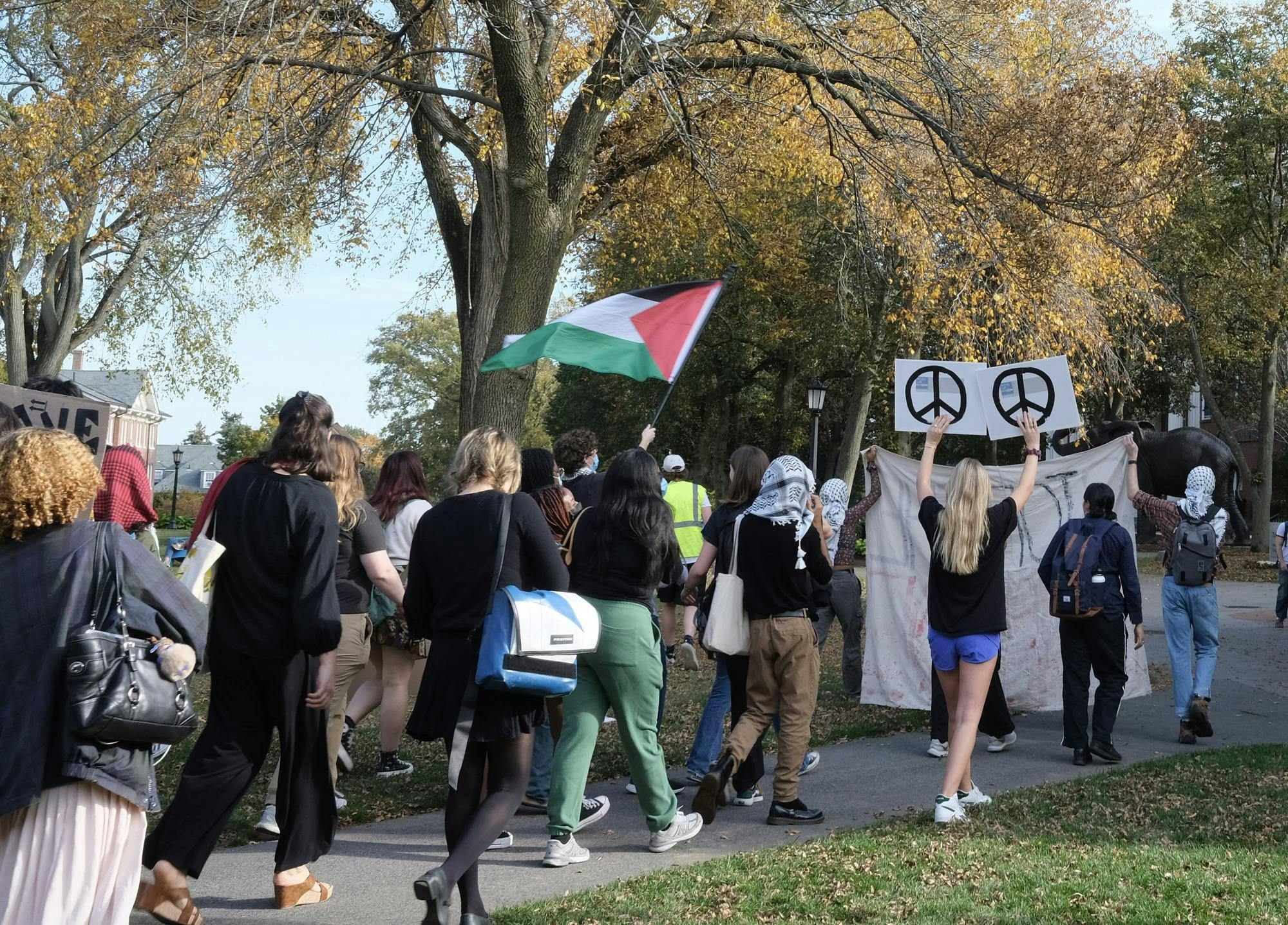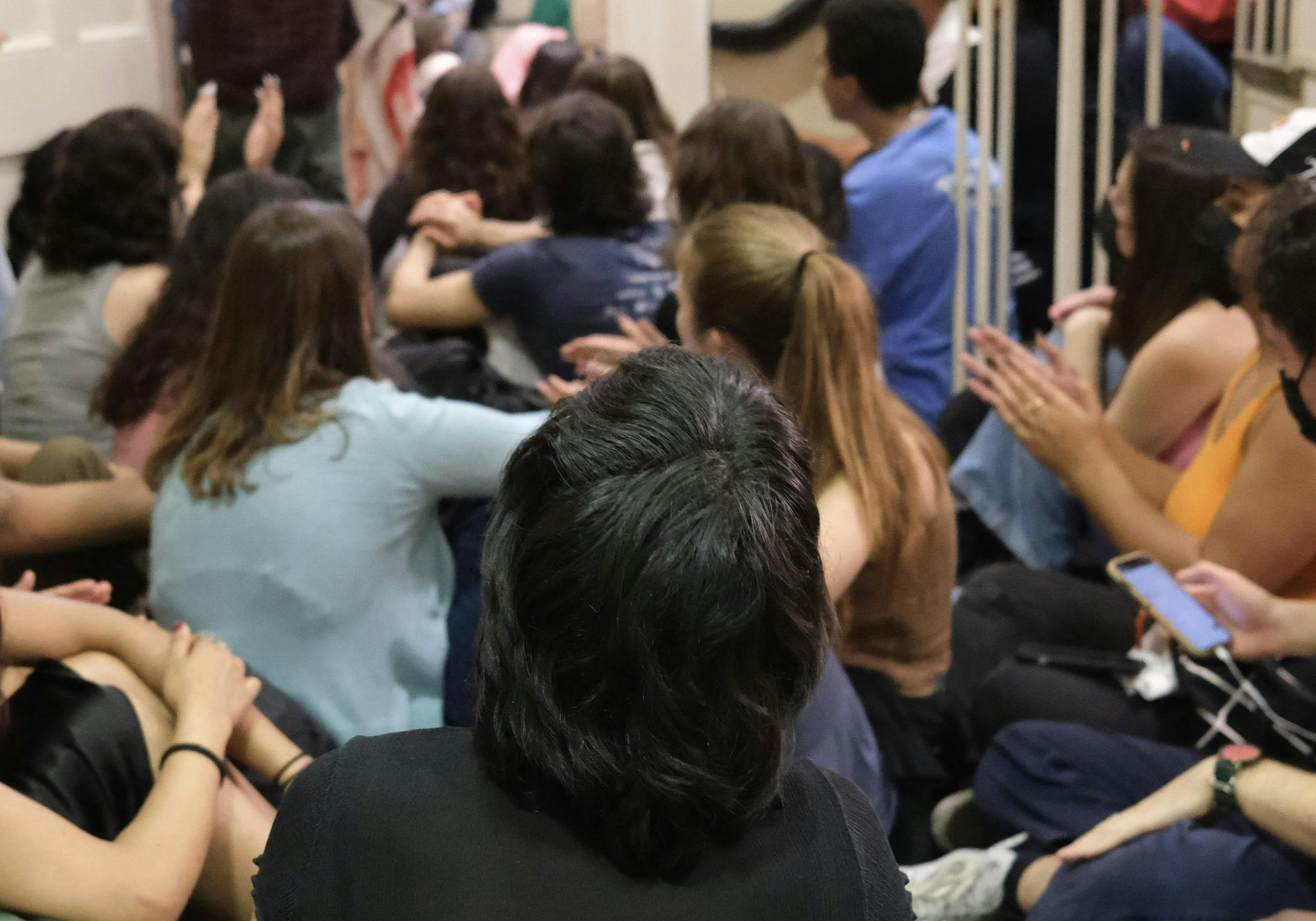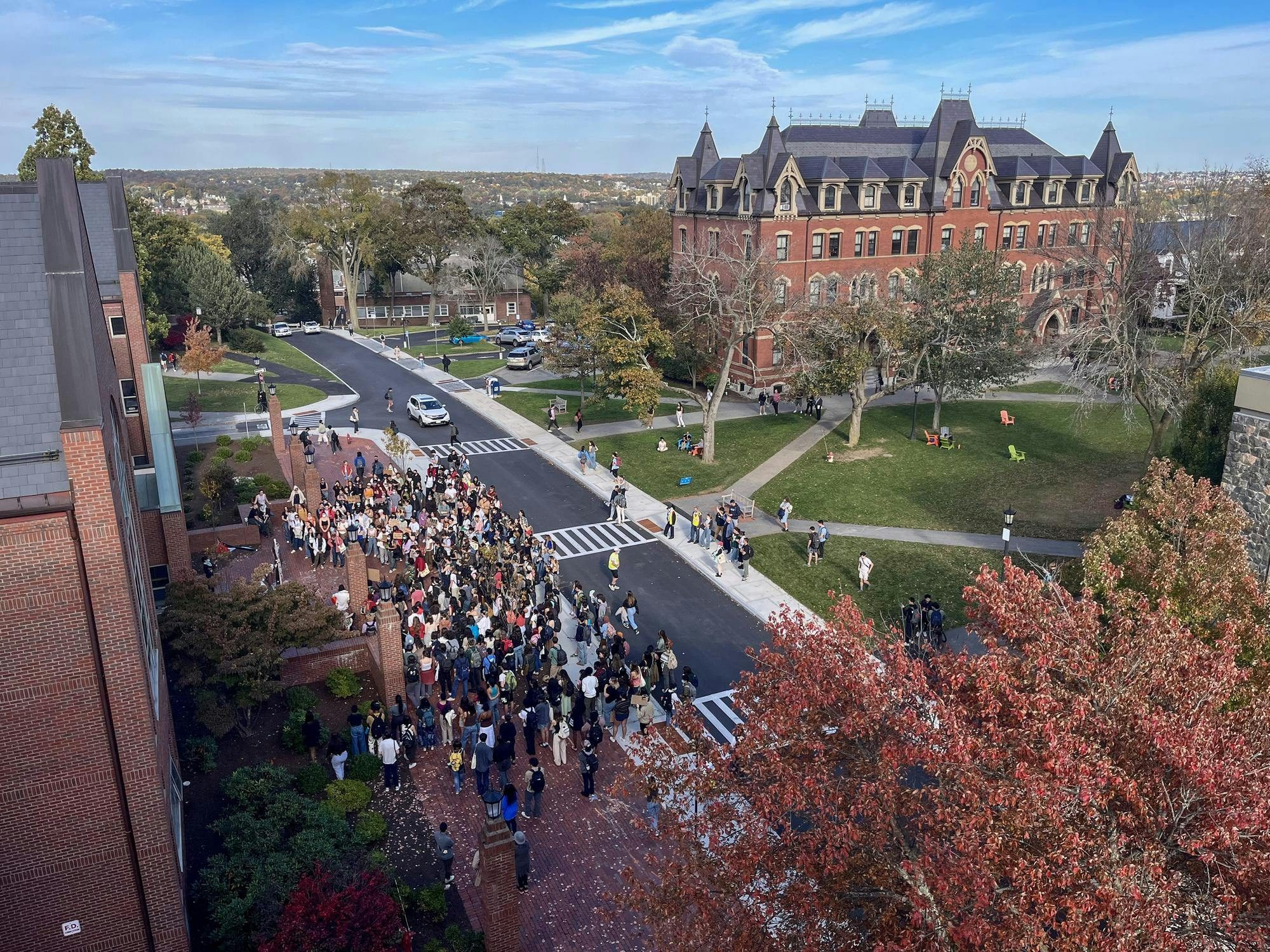Students across campus walked out of classes and protested yesterday in solidarity with Palestine. The walk-out, which was organized by Tufts Students for Justice in Palestine, began at 2:30 p.m. when more than 120 students congregated to chant and hear speeches outside the Olin Center for Language and Cultural Studies.
“This turnout should signify to Tufts that a large amount of students, who prioritize this over their classes, are saying there cannot be business as usual while our institution is complicit in the genocide of the Palestinian people in Gaza,” a spokesperson for Tufts SJP told the Daily.
In addition to calling for an immediate ceasefire and an end to U.S. aid for Israel, Tufts SJP also had three specific demands for the Tufts administration.
“We demand that the university discloses its direct and indirect investments and fully divest from any companies that profit off of or fund Israeli apartheid … that President Kumar releases a statement condemning the genocide in Palestine … and that the university end all programs and funded trips to the entirety of occupied Palestine,” the spokesperson said.
Patrick Collins, Tufts’ executive director of media relations, wrote that the “loss of life in Israel and Gaza is heartbreaking” in a statement to the Daily.
“We hold close in our hearts and thoughts all those who are suffering in the region and here at Tufts through such difficult times. At moments such as these, it is important for Tufts to do what it does best as an institution of higher education: to teach and foster civil discussion in the spirit of learning,” Collins wrote. “The University leadership has been heartened by the facilitated conversations that have occurred at our schools over the past week, including multiple events on our campuses, and we look forward to creating more opportunities for dialogue and learning in the coming days.”
At the rally, the spokesperson for Tufts SJP criticized University President Sunil Kumar’s Oct. 11 community-wide email that condemned the Hamas attacks, saying he showed “complete disregard for the genocide in Palestine and for Palestinian lives.”
Following the initial demonstration at Olin, students marched to Ballou Hall, where Kumar’s office is located. Dozens entered the building and staged a sit-in, filling the first floor.

Inside Ballou, a student speaker criticized Tufts’ usage of products by companies such as HP, which manufactures computers used at Israeli checkpoints. The speaker also called on Tufts to stop selling products made by Pillsbury and Sabra; the former sold products manufactured in an East Jerusalem factory, and the latter has faced criticism for its co-owner’s support of the Israel Defense Forces’ Golani Brigade.
Collins said the university does not support boycotts, divestments or economic sanctions against Israel. “We have always been opposed to the BDS movement and our stance on divestment remains unchanged,” he wrote.
During the sit-in, students chanted, “No justice, no peace” and “Hey, Tufts, you can’t hide, you’re supporting genocide.” One speaker connected the protest to other social justice movements at Tufts.
“As a student movement, we learn and grow from movements we’ve seen in the past,” the speaker said. “From the movements at Tufts to divest from apartheid South Africa, to the [movement] to divest from the military industrial complex to fossil fuels and beyond. That is the vital role which we must play in the liberation of Palestine.”
In the weeks following the Oct. 7 attack by Hamas, college activists have faced national scrutiny; recently, members of Harvard student organizations who signed an anti-Israel letter were doxxed, and some had their faces displayed on a billboard truck driven around campus.
According to Collins, the university has received “isolated reports of potential discrimination” that are being investigated. “We ask that the entire community, no matter what their perspective, join in respectful discourse,” he wrote.

Students stage a sit-in on the first floor of Ballou Hall on Oct. 25.
During the rally, students were encouraged to cover their faces using disposable masks or keffiyehs. “We’re all secure as of now, [but] Tufts SJP has received several death threats in the past few weeks,” the Tufts SJP spokesperson said.
According to Collins, the Tufts Department of Public Safety has not received reports of death threats from members of SJP; but in response to doxxing concerns, Yolanda Smith, executive director of public safety, wrote in a Friday email to the Tufts community that the university had increased its foot and cruiser patrols and would increase security measures at high-profile events.
As the protest ended and students streamed out of Ballou, they chanted “we will be back.” A speaker at the event announced to students that there would be another protest on Monday.
“If we keep doing this, if we can keep showing up in numbers like this,” one protestor said in a speech to the crowd, “they have to respond to our demands.”






